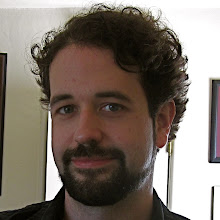Today I was introduced to the Teacher Performance Expectations (TPEs), the list of standards to which California teachers are expected to conform. Most of these are pretty self-explanatory: Making subject matter comprehensible to the students, monitoring student learning, allocating and managing instructional time, etc.
The TPEs all seem important -- I can't pick any one of them as being "irrelevant", since I can see the usefulness and applicability of each. If I had to pick one that stands out as particularly critical, though, it is TPE5: Student Engagement. A teacher must know what the academic goals are, shape the presentation of the material in order to keep the students active and engaged, monitor their progress, and -- key phrase here -- extend student thinking. This, to me, is crucial: not just teaching content, but teaching students how to think critically about that content. All of the data in the world is useless if you don't have the skills to process it, filter it, analyze it, and draw conclusions about it. Keeping students' minds engaged in the learning process in an active way is essential if they're going to walk out of the classroom with knowledge that they can actually apply to the world around them.
One area I'm looking forward to receiving more information about is TPE7: Teaching English Learners. The overview of the standards talks about "Drawing upon student backgrounds and language abilities to provide differentiated instruction"; I'd like to see how this works in practice. I would suspect that science, in particular, would be difficult to learn in a language that you had not already mastered; the technical language involved in scientific theory is complex, and it can be difficult to express these concepts if your knowledge of the vocabulary and grammar of a language is limited. I took three years of Spanish in college, and I would still not have felt comfortable conversing about scientific concepts in that language, even when I was at the height of my Spanish-speaking capability. I'm curious to see what tools and techniques have been developed to help students deal with this barrier to the material that some of them will no doubt have to confront.
Subscribe to:
Post Comments (Atom)

1 comment:
Yes, the language of science is just that-- an entirely different language, and it will help your students' science and language development if you approach your teaching with this in mind. What were some of the things your Spanish teacher(s) did that helped you learn/use the language, and could those be applied to your science classroom?
Post a Comment